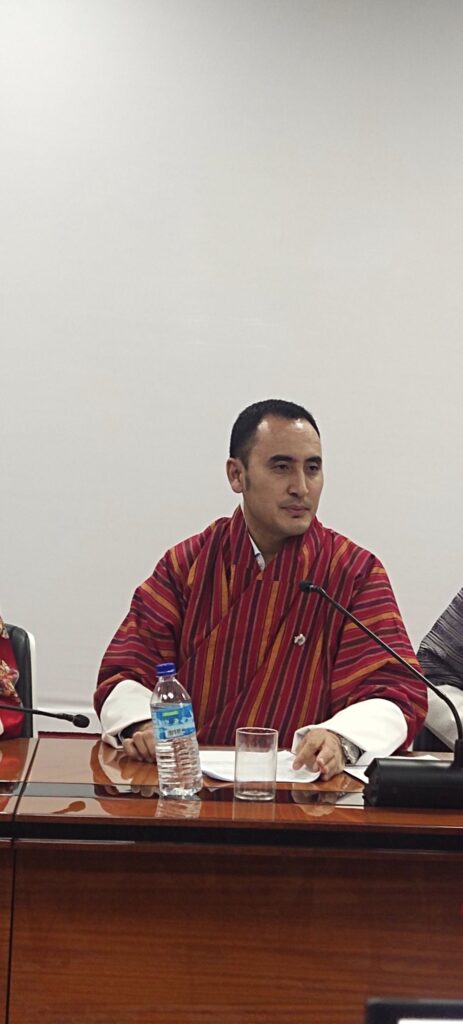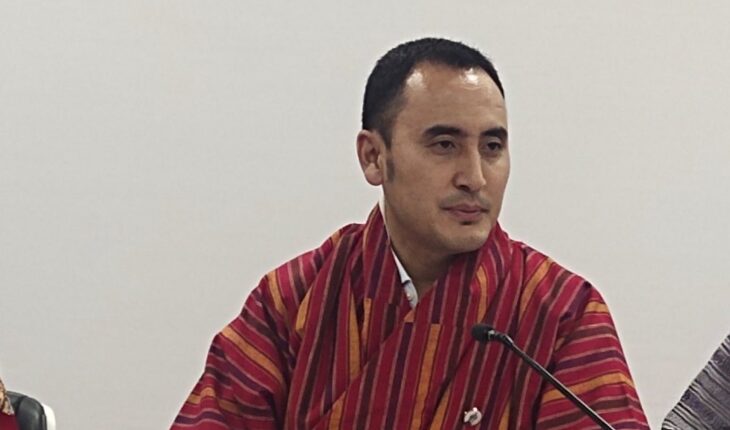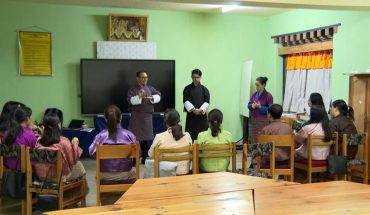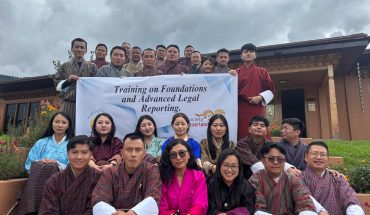
TIL BDR GHALLEY
Thimphu
Bhutan has been ranked among the countries with the highest average working hours globally in 2024, according to a recent report by the International Labour Organization (ILO). The report states that Bhutanese employees work an average of 54.4 hours per week, with 61 percent of the employed population working 49 hours or more. However, concerns have emerged regarding the accuracy of this comparison, as Bhutan’s data is from 2022, while other countries’ statistics span from 2019 to 2023.
This raises concern about the validity and fairness of such international comparisons. Despite public surprise at Bhutan’s position ahead of nations like Japan, Korea, and Australia—commonly associated with intensive work cultures—the government has not formally challenged the ILO’s methodology. The Ministry of Foreign Affairs and External Trade (MoFAET), in a directive issued on May 2, 2024, advised the Department of Labour to refrain from engaging with the ILO until Bhutan attains full membership status.
“As Bhutan is not yet an ILO member, we currently do not benefit from direct technical support or harmonized data collection standards,” said Lyonpo Namgay Dorji, Minister for MoICE. “The ILO has emphasized the importance of timely and accurate submissions from its member states.”
Under Labour and Employment Act (LEA) 2007, the legal working limit is set at 48 hours per week, with an additional 12 hours of paid overtime, aligning with ILO standards. The Labour Force Report 2024 indicates that the national average stands at 50.26 hours weekly, with 43.34 percent of employees working beyond 49 hours. The agriculture sector tops the list, followed by industry and services.
In fiscal year 2024–2025 alone, the Department of Labour resolved around 50 complaints within the hospitality sector related to unpaid overtime and unlawful terminations. Officials acknowledge that the actual figures are likely much higher.
To address these challenges, the Department is planning a comprehensive study on wages and working hours. This includes proposals to introduce digital payment and time-recording systems across the private sector to better track working hours and ensure fair compensation.
“We are taking a balanced approach,” Lyonpo stated. “While protecting employees’ rights, we also need to be mindful of creating a conducive business environment.”
Efforts to revise the National Minimum Wage have faced delays due to concerns over economic impact. Only the wage rates for the national workforce were revised in 2023. Broader reforms remain pending.
Health implications of excessive work are also under scrutiny. The Ministry of Health (MoH) acknowledged the global evidence linking long working hours with mental health issues such as burnout and stress. In Bhutan, where nearly half the workforce puts in 49 hours or more weekly, often without job security or overtime pay, the risks are substantial.
“In collaboration with RCSC and other agencies, we’ve begun implementing wellness programs for civil servants,” said Lyonpo Tandin Wangchuk, MoH. “These include nationwide events like marathons and Zumba, and the integration of Sorig-Zhiney sessions to support mental well-being.”
According to the Ministry, more than 200,000 adults—including many civil servants—participated in health screening and awareness programs this year. Localized action plans for non-communicable disease prevention are also being implemented through community-based support structures.
As part of the 13th Five-Year Plan, the government will roll out the National Physical Activity Strategy aimed at promoting wellness across government, private, and religious institutions. “We’re encouraging physical breaks during long meetings and mindfulness sessions after office hours,” said the minister.
From an economic standpoint, concerns remain about the relationship between long hours and productivity. The Royal Monetary Authority’s 2024 report showed a drop in hourly earnings in the service sector from Nu 361 in 2022 to Nu 333 in 2023, despite longer working hours. The lowest earnings were recorded in household employment.
Moreover, the 13th Plan identifies that 52 percent of Bhutan’s labor force lacks essential skills, especially in sectors like construction, manufacturing, accommodation, and energy.
“Working longer doesn’t mean working better,” said Lyonpo Lekey Dorji, MoF “Sustainable productivity comes from better skills, smarter work organization, and effective use of technology.”
The government aims to enhance job quality and productivity by aligning fiscal policies with job creation, catalyzing private investment in high-potential sectors, and encouraging formalization of the informal economy.





